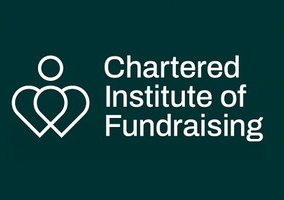The Chartered Institute of Fundraising (CIOF) has updated its guidance on face-to-face fundraising in response to the Fundraising Regulator’s market inquiry into subcontracting last year.
CIOF said that it had made major revisions to its guidance for the first time since 2016 and aimed to strengthen best practice and improve accountability in face-to-face fundraising.
Its revised guidance follows the regulator’s conclusion in 2024 that charities needed to “tighten” their subcontracting arrangements and focus more on due diligence and contract management.
The updated guidance now includes “clear expectations for charities and fundraising agencies”, the CIOF said, with new sections that will cover subcontracting arrangements, safeguarding of fundraisers, transparent job advertising and robust due diligence.
It also advises charity leaders and trustees on how to manage outsourced fundraising responsibility; understand and ensure transparent payment models, and protect frontline workers through fair working conditions and whistleblowing policies, as well as offering support in more isolated roles such as door-to-door fundraising.
Safeguarding recommendations
Among the updated framework’s changes to its predecessor, the guidelines around subcontracting now reflect guidelines from the Fundraising Regulator, which include recommending that trustees have “a clear line of sight when it comes to knowing who is representing their charity in public fundraising settings”.
Additionally, the updated framework now includes several measures to improve the safeguarding of face-to-face fundraisers; these include an emphasis on fair working conditions, appropriate pay for hours worked, and policies that protect fundraisers in isolated roles like door-to-door fundraising.
New guidelines also recommend more transparent job advertising, to ensure that fundraisers understand the roles they are applying for, and more due diligence and oversight from senior charity leaders to understand their responsibilities when working with professional fundraising agencies.
Due diligence and oversight: helping trustees and senior charity leaders understand their responsibilities when working with professional fundraising agencies.
Regulator welcomes updated guidance
Claire Stanley, director of policy and communications at CIOF, said: “The Fundraising Regulator has been clear that trustees and senior leaders of any charity engaging in face-to-face fundraising need to be aware of which organisation is representing them, and we have set that out in this guidance.
“We have also set out expectations for the safeguarding of fundraisers within this guidance – that they have fair working conditions, full transparency over payment models, and that they are being fairly and appropriately remunerated for the work they are doing, and the hours they have worked.
“In addition to this, we expect policies to be in place to safeguard fundraisers in the field – particularly if they are participating in more isolated roles like door-to-door fundraising.
“Appropriate whistleblowing policies should also be in place to ensure that fundraisers feel safe to raise concerns if they have them.”
Jim Tebbett, head of proactive regulation and projects at the Fundraising Regulator, said: “This new guidance supports charities and agencies to build strong, transparent, and accountable fundraising partnerships: something our inquiry showed is essential to maintain public trust in the sector.
“Many charities and agencies have already taken steps to learn from and implement the recommendations from the market inquiry, and this guidance will help them to continue to do so.”
Related articles












